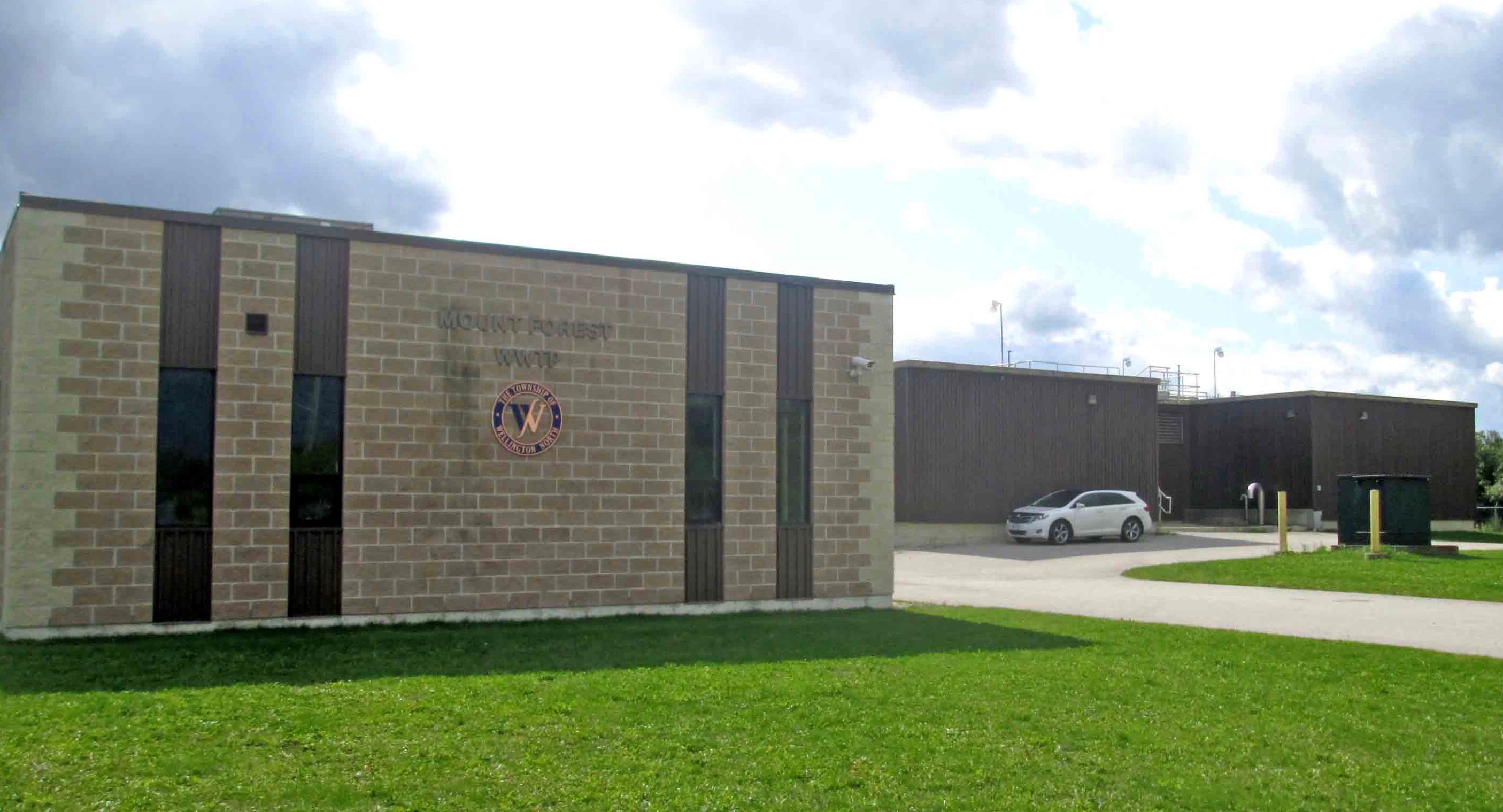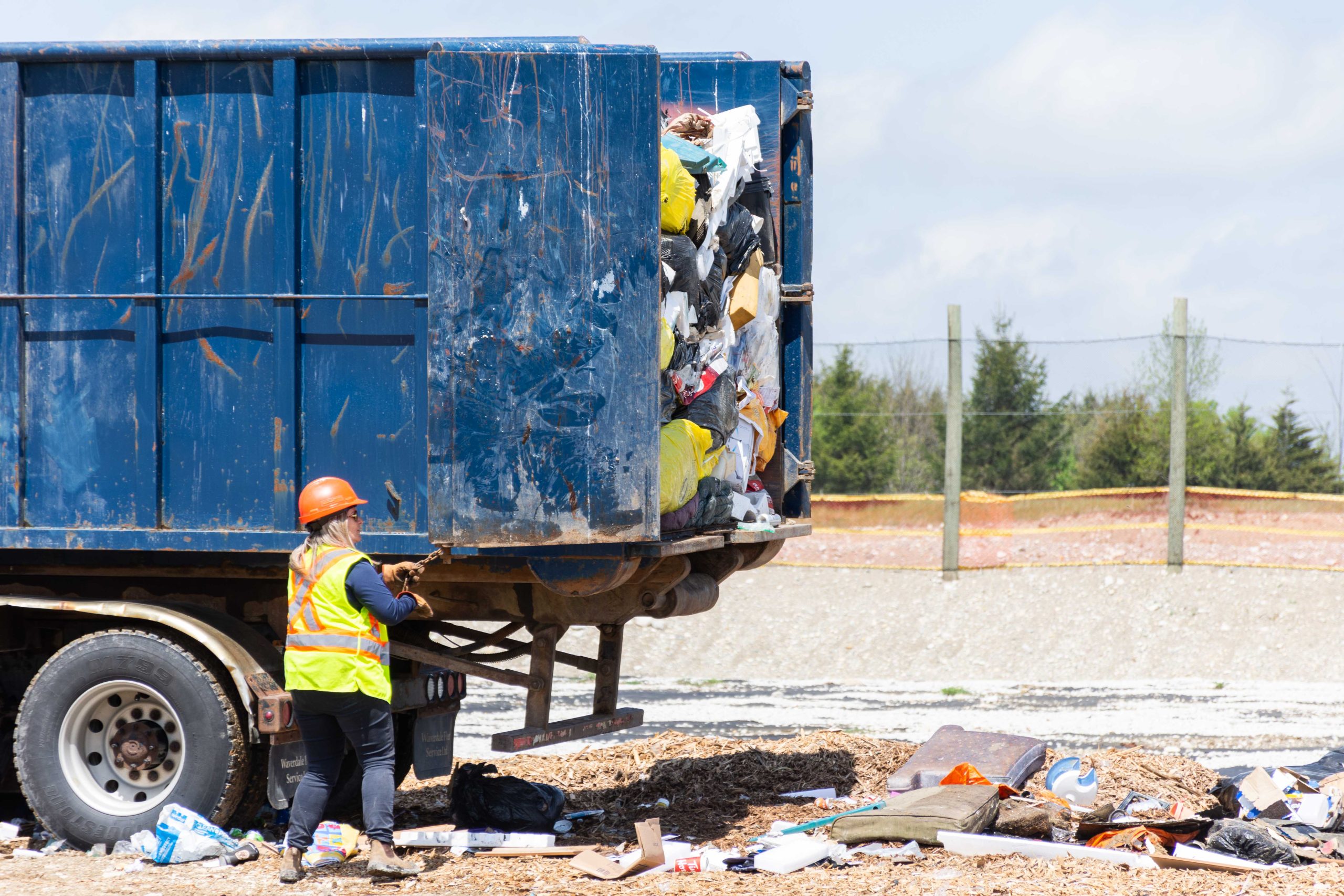KENILWORTH – The county is renewing a years-old request to Wellington North Township to treat leachate from the Riverstown landfill at the Mount Forest wastewater treatment plant.
In a presentation to township council at its Oct. 7 meeting, environmental consultant Darren Dickson said discussion of how leachate from the waste facility would be handled began back in 2021, before Phase II of the facility opened in 2022.
Leachate is water that percolates through trash, picking up contaminants along the way.
“We agreed with the Ministry [of Environment] on an interim basis that we could manage the leachate in three ways while we came to terms with a long-term treatment method,” Dickson said.
The first way was to continue to test the water to ensure it met certain criteria, and run it through an on-site storm water management system, he said.
“As the site grows, the strength of the leachate is going to increase,” Dickson continued, explaining the next treatment method is beginning to be implemented now.
It involves recirculating the Phase II leachate through the Phase I landfill in order to help the Phase I waste break down faster, and in order track the impacts.
“These are only interim measures,” he stressed. “The ministry put a timetable on it.
“We’re running close to the end of the timetable, so we really need to come up with some kind of an agreement on a solution relatively quickly.”
All this was said in response to a question from councillor Sherry Burke about why the county was bringing this issue forward now.
“You alluded to the fact that we’re running out of time, what is that time period?” Burke asked.
“All I can say is as soon as possible right now,” Dickson answered.
His presentation was the response to a request for additional information from the township, after the county asked the township to consider treating the leachate in 2021.
The Riverstown Waste Facility, located roughly midway between Kenilworth and Mount Forest, started filling at the Phase II landfill in 2022.
“This is the first engineered site that’s ever been used in the county,” Dickson explained in his presentation.
What that means is the landfill incorporates a base liner that prevents leachate infiltrating the groundwater. But that also means the leachate must be collected and treated.
When it comes to treatment, municipal wastewater treatment is considered the “gold standard,” Dickson told council.
The Mount Forest treatment plant is the nearest municipal treatment facility to the landfill site.

MOUNT FOREST WASTEWATER TREATMENT PLANT (Advertiser file photo)
Concerns raised by the township included costs, impacts on the reserve capacity at the wastewater treatment plant, impacts on the treatment system and impacts on the Saugeen River, where treated wastewater is discharged.
Dickson told council leachate volumes should actually decrease over time as the landfill is filled with more waste, which absorbs more water.
“The high volumes are going to be generated closer to the beginning when you have reserve capacity to spare,” he said.
He referenced prior reports from BM Ross that stated the leachate shouldn’t cause any impact to the effectiveness of the wastewater treatment plant.
“There might be some minor design improvements” needed to handle the leachate, he said.
When it comes to the impact to the Saugeen River, Dickson said the previous studies indicated “they don’t think there is going to be any impact on the discharge.”
When it comes to concerns over microplastics, he said there are already lots of those coming from the sanitary sewer, and by the time the plant is expanded in the future, the leachate is expected to account for under one per cent of the total volume, he said.
Costs were presented in a chart showing seven possible treatment options and their associated costs, but Dickson pointed out two of the options stood out as significantly cheaper than the others.
The first was a force main to pipe leachate to Mount Forest for treatment, and the second would involve the county purchasing its own trucks to transport the leachate to the same treatment facility.
“As soon as you start to look at other alternatives, costing goes up,” Dickson said.
Those two options were presented with similar costs – $9.6 million for the force main, and $9.3 million for trucking.
Using different sized trucks in house to take the waste to Mount Forest was presented with a slightly higher cost estimate of just under $11.7 million.
Meanwhile, on-site treatment at the landfill was expected to cost more than $21.3 million; in-house trucking to Guelph’s wastewater treatment plant came in at almost $38 million; private trucking to Mount Forest was $23.8 million; and private trucking to Guelph was $52.3 million.
Councillor Steve McCabe asked whether Guelph was the only other possibility aside from Mount Forest, and he was told not necessarily.
“This is a place we know is set up for treating leachate already,” Dickson said of Guelph. But he added it might be a difficult negotiation with the city.
Wellington County solid waste services manager Das Soligo stood up to add there are no other treatment plants within the county that could take the leachate.
“The member municipalities are all essentially at capacity with their wastewater treatment plants,” Soligo said.
Councillor Lisa Hern asked about how the township might be compensated by the county for lost capacity and use of its infrastructure.
Dickson said the county would pay “on an ongoing basis” for the treatment costs “at cost, plus a premium on top of that.”



